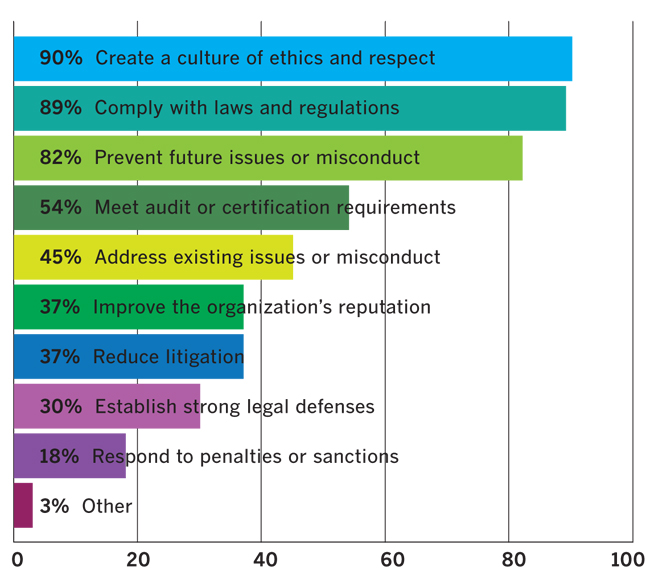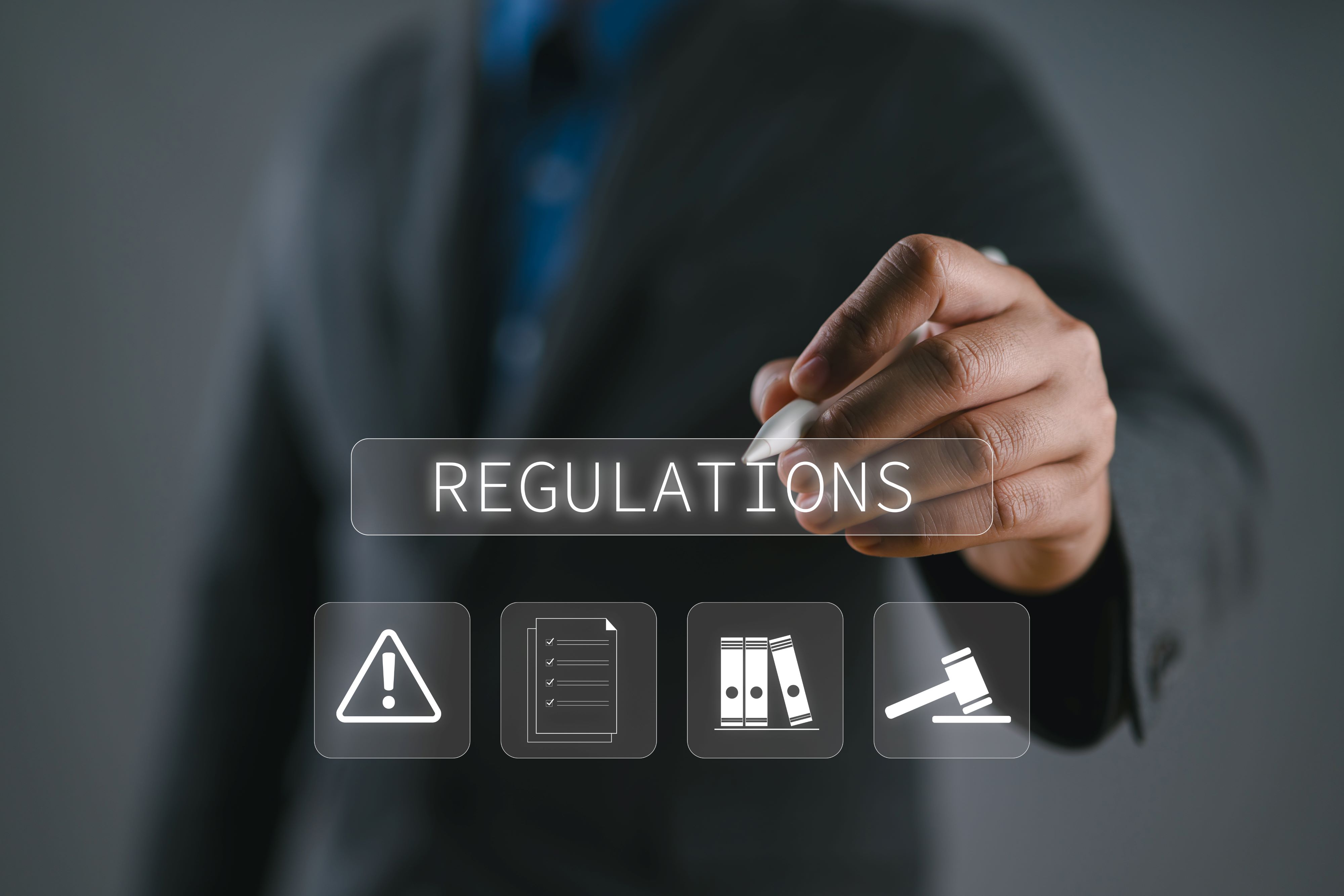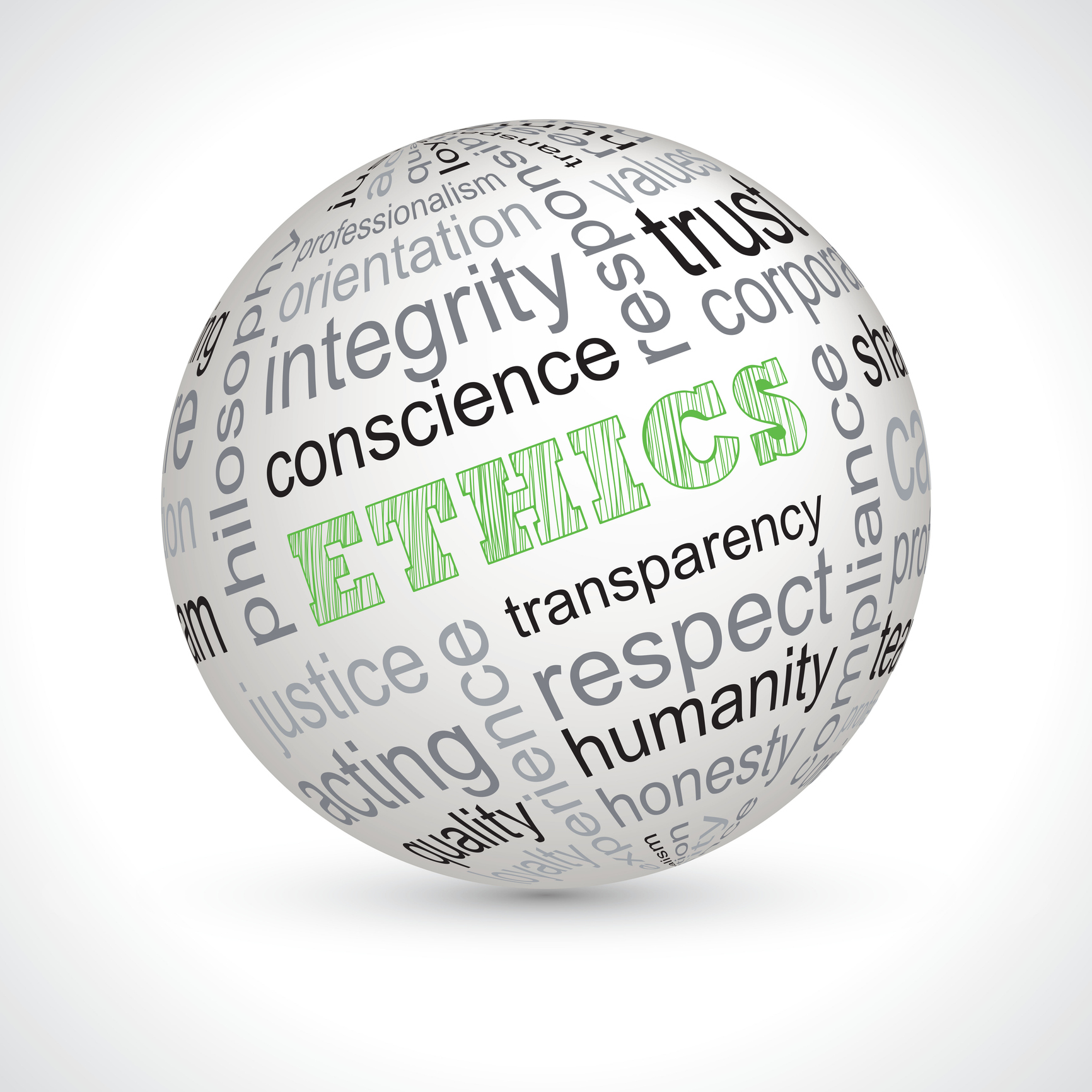October 2014
ON ETHICS
Organizations Strive to Develop Ethics Culture,
But Must Measure Effectiveness
Ethics training is changing. Creating a culture of ethics and respect is now the top objective for ethics and compliance professionals, edging out a simple focus on complying with laws and regulations.
An ethics and compliance software, content, and services provider recently partnered with a research agency to survey more than 750 individuals responsible for training programs.
Among survey respondents, culture won out over defensibility as the primary objective. “This is an important program evolution that signals a broader awareness of the need to help employees understand what it means to act ethically and with integrity,” the report says, “and a realization that desired compliance behaviors often flow from a culture of ethics and integrity.”
However, “check-the-box” or other outmoded training methods will not suffice to create such a culture, the authors write. In fact, they can backfire by increasing employee cynicism. Organizations need to ensure high-quality, engaging training becomes the norm and not the exception.
Another caveat: Creating a culture tends to require more time than simply ensuring compliance.
More than half of respondents cited time constraints as a major challenge to ethics and compliance training. One way that respondents are addressing that is with a growing emphasis on “short-form” or “burst learning” training, three to seven minutes that focus on a specific issue or critical update. This method ensures the coverage of more topics in less time and at a lower cost, and allows companies to refresh training more frequently.
Measuring training effectiveness was also a top challenge. The most prevalent approach (used by 72% of respondents) is simply measuring training completion rates.
But demonstrating effectiveness is necessary not only to be able to improve programs but also to justify expenses. “Establishing what ‘effectiveness’ means, determining how to measure it, and then collecting and reporting on the data are the challenges that lie ahead for forward-thinking compliance professionals,” the report notes.
Top Ethics and Compliance Training Objectives

Source: NAVEX Global’s 2014 Ethics and Compliance Training Benchmark Report


 Volunteering at NSPE is a great opportunity to grow your professional network and connect with other leaders in the field.
Volunteering at NSPE is a great opportunity to grow your professional network and connect with other leaders in the field. The National Society of Professional Engineers (NSPE) encourages you to explore the resources to cast your vote on election day:
The National Society of Professional Engineers (NSPE) encourages you to explore the resources to cast your vote on election day:



